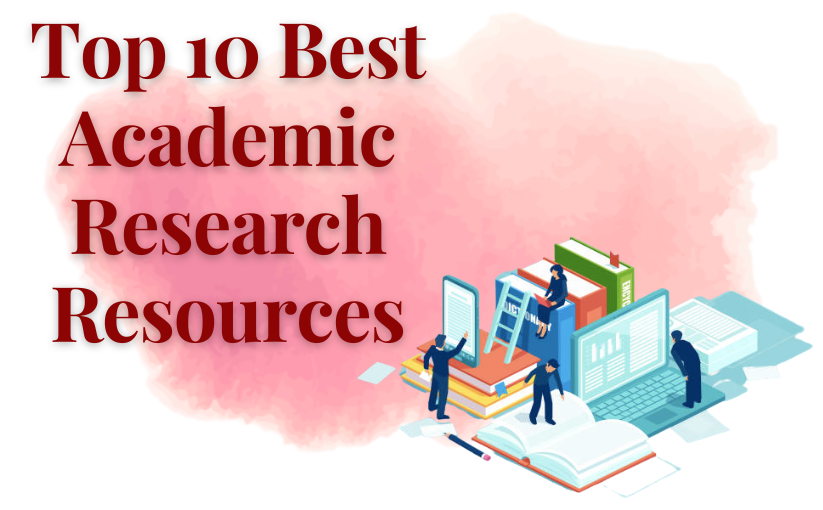Where to Find Premium Academic Resources for Your Research
Recognizing top quality scholastic sources is important for extensive research, yet navigating the huge landscape of offered materials can be daunting. University collections offer as indispensable centers, using not just substantial collections however likewise the know-how of specialized librarians. Additionally, on the internet academic databases like JSTOR and PubMed accumulated scholarly articles, while open gain access to journals provide more comprehensive accessibility to research searchings for. Nonetheless, the expedition does not stop there; different systems exist that better enhance research study abilities. Understanding exactly how to leverage these sources efficiently could substantially influence your study outcomes. The next actions could amaze you.
University Libraries

Beyond physical collections, university libraries often use specific research study help, including consultations with librarians that have subject experience (Docentra). This advice can considerably enhance the performance and efficiency of the research study procedure, enabling users to navigate complex information landscapes with higher ease
Additionally, several libraries give access to rare and archival products, which can be indispensable for sophisticated study projects. Such distinct sources commonly include primary documents, manuscripts, and historical collections that are not readily available somewhere else.
Furthermore, college collections often hold workshops and workshops focused on improving info proficiency abilities. These efforts equip students and faculty to critically assess sources, an essential skill in today's information-rich setting. In general, college libraries not just function as databases of knowledge however additionally work as vibrant centers that foster academic growth and technology.
Online Academic Data Sources
In the world of scholastic research, on the internet scholastic data sources play a critical duty in offering trainees and scholars with prompt access to a wealth of scholarly articles, journals, and other essential resources. These digital databases work as central platforms where customers can effectively look for peer-reviewed literature across different self-controls.
Famous databases such as JSTOR, PubMed, and Scopus host considerable collections that cover a wide variety of topics, from the liberal arts to the scientific researches. Docentra. By employing sophisticated search capabilities, scientists can fine-tune their inquiries, filter outcomes by publication date, and accessibility citation tools, consequently enhancing the research study process's effectiveness and accuracy
Moreover, lots of databases provide attributes like informs for new publications and the capacity to save and organize posts, further streamlining the study experience. Subscriptions to these data sources are typically given with scholastic institutions, approving pupils and professor unlimited accessibility to premium content.
Open Accessibility Journals
Significantly, researchers are transforming to open accessibility journals as a complementary source to traditional academic databases. These journals offer a useful system for sharing research searchings for without the financial barriers often related to subscription-based publications. Open up access versions allow for cost-free online accessibility to scholarly posts, making certain that research comes to a wider target market, consisting of experts, policymakers, and the public.
The high quality of open access journals has click for source substantially boosted, with several sticking to extensive peer-review procedures and being indexed in credible data sources. This shift has actually cultivated higher transparency and partnership in the academia, as researchers can share their job much more readily and get feedback from diverse perspectives.
Additionally, the spreading of open accessibility journals aligns with the international activity in the direction of open science, advertising the idea that publicly financed study should be easily available to all. Researchers seeking top notch scholastic sources should think about trustworthy open accessibility journals, such as those listed in the Directory site of Open Accessibility Journals (DOAJ) or those published by recognized academic societies. By integrating open gain access to journals right into their study techniques, scholars can enhance the visibility and impact of their work.
ResearchGate and Academia.edu
ResearchGate and Academia.edu have emerged as essential platforms for academic networking and understanding sharing, with millions of scientists leveraging these sites to distribute their work and get in touch with peers. Both platforms allow users to develop profiles that showcase their magazines, research study passions, and academic success, facilitating higher presence within the academic area.
ResearchGate, established in 2008, concentrates on promoting collaboration among scientists via functions such as research collaboration tools, task sharing, and question-and-answer online forums. Customers can submit their documents, take part in discussions, and follow the work of others, boosting the collective capacity of their study. The system likewise provides metrics theoretically exposure and downloads, allowing researchers to assess the impact of their work.
Academia.edu, released in 2008 also, runs in a similar way but emphasizes the sharing of academic documents. Customers can follow specific research subjects and get updates on brand-new magazines within their areas of passion. Additionally, Academia.edu supplies analytics on viewers involvement, aiding scientists understand their audience better.
Both platforms function as valuable sources for accessing high-quality academic web content and fostering links that can bring about impactful partnerships.
Google Scholar and Beyond
Academic networking platforms like ResearchGate and Academia.edu play a substantial function in distributing research, however Google Scholar provides a various measurement by functioning as a thorough online search engine for academic literary works. It indexes a vast array of sources, including peer-reviewed posts, theses, more tips here books, seminar process, and patents, making it a vital tool for scientists across disciplines.
Google Scholar gives numerous functions that enhance research study efficiency. The citation tracking function permits individuals to see how typically a paper has been mentioned, supplying understandings right into its effect within the academia. Additionally, the "related write-ups" function helps researchers discover comparable research studies, assisting in a more complete expedition of a subject.

Conclusion
In conclusion, accessing top quality scholastic resources is vital for strenuous research study. College collections offer considerable collections and experienced support, while on the internet academic databases such as JSTOR and PubMed centralize scholarly articles. Making use of these resources collectively can dramatically improve the quality and depth of scholastic research.